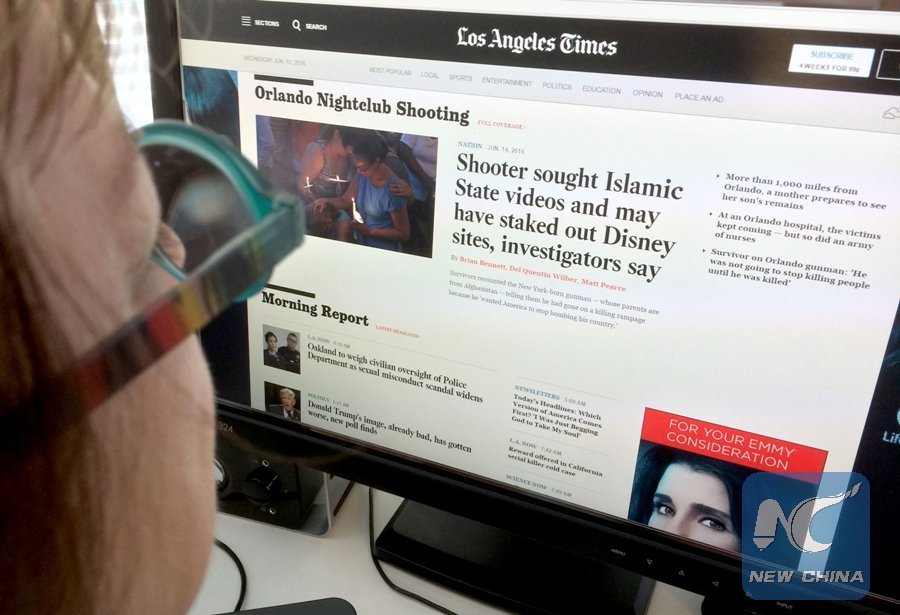 A woman reads The Los Angeles Times at her computer on June 15, 2016 in Washington,DC. (AFP/File Photo/ Karen BLEIER)
A woman reads The Los Angeles Times at her computer on June 15, 2016 in Washington,DC. (AFP/File Photo/ Karen BLEIER)
SAN FRANCISCO, July 2 (Xinhua) -- An online annotation tool, known as Lacuna, is helping students and researchers with reading, writing and fostering an exchange of ideas in the fields of humanities and social sciences, according to Stanford University.
As a free online platform that encourages interdisciplinary conversations and peer-to-peer learning, Lacuna allows students and professors to discuss and annotate texts, images and other media online synchronously as well as organize and analyze those annotations.
Brian Johnsrud, co-director of Stanford's Poetic Media Lab, which is part of the university's Center for Spatial and Textual Analysis (CESTA), first had the idea for Lacuna in 2012 while working on his doctorate at the school of higher learning. Johnsrud noticed that in-person discussions between students and professors are especially beneficial in humanities courses, which emphasize critical thinking, reading comprehension and the exchange of ideas.
Johnsrud wondered if those discussions could be expanded beyond the allotted class time with the help of a tool that could let participants interact on texts and visual materials online. But tools that allowed the level of interaction Johnsrud and his colleagues sought did not exist at the time.
Developed in 2013 by researchers in CESTA, Lacuna was first used at Stanford. After a few years of perfecting the platform, the team licensed Lacuna as an open-source tool, allowing free access to educators all over the world. It has been used at the University of California, Berkeley, Princeton University, Dartmouth College and the University of Copenhagen, Denmark, among other institutions.
"This way you can begin your class by jumping into the discussions that began through the online interaction before the class," Johnsrud was quoted as saying in a news release. "This also allows a little change of the power dynamic in the classroom. Instead of the teacher setting the agenda, it allows instructors to step back and let students highlight parts of the text they want to discuss and explore."
Johnsrud said Lacuna was useful for faculty members working in collaborative research environments. For example, anthropology experts working at different sites around the world have used Lacuna to collaborate and make notes from the field in real time.
"In academia, we always want to have a broader impact, especially beyond our own departments and fields," noted the researcher, who has worked with his his colleagues in the last two years to introduce the platform to community colleges in the San Francisco Bay Area. "So it's really rewarding to see something that we put a lot of time into in the Stanford context find a place and find real value in other educational settings."

